Singer-songwriter Luke Clerkin told Cara Treacy and David Hennessy about his first London headline show and why he is passionate about causes such as homelessness and mental health.
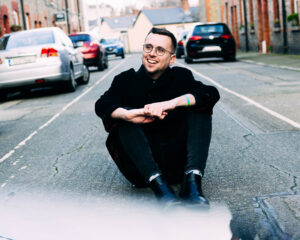
Following a summer of festivals, Tallaght singer songwriter Luke Clerkin is set to play his first headline show in London on 19 October.
Luke will play an intimate show at the Camden Chapel on the top floor of the London Irish Centre.
Support on the night comes from London-based Canadian-Hungarian singer-songwriter, MELÓ music.
Luke is a two time Sports and Cultural Council Song-Writing Competition winner.
His music has gained international airplay and support, whilst also topping the Irish Singer-Songwriter Charts on multiple occasions.
Luke became known for playing over 250 gigs in 2015, as a way of honing his craft.
Since then he has headlined famous Dublin venues such as Whelan’s, The Workman’s Club, and The Button Factory. His music has brought him all over the world, with multiple tours of Germany, as well as festival slots in America, The UK, and Ireland.
Fresh off an Irish tour and a date in West Hampstead Arts Club, Luke is now in the middle of recording his debut album, Orpheus, which will be released in 2024.
Are you looking forward to coming to London
for your first headline show?
“Yeah, it’s mad.
“I’ve been over to London many times in the last year.
“I went over initially for a funeral. I wanted to kind of get away from the sadness because it was a sombre time. It was my uncle’s funeral. I ended up going to a couple of open mics and met an Irish lad who was over there and we did a gig together. And then I did another gig there in June, which was a co-headliner with him, his name is Naosán Moore.
“While I was over there in June, I went into the Camden Irish Centre. Obviously being Irish, I want to go to somewhere that’s Irish. I went there and I felt the céad míle fáilte, the thousand welcomes.
“I met a girl from East Wall and another girl from Kilkenny and then they brought me up and they showed me the chapel. And I was like, ‘I want to play there’. And then I ended up making it happen. So it’s gonna be lovely. It’s gonna be beautiful.”
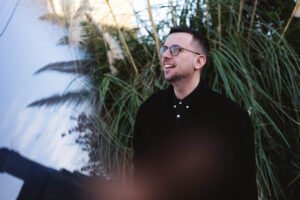
The Irish World caught up with Luke on the same day he joined a housing protest in Dublin, a cause he is passionate about and has affected him personally.
Luke told us: “We’re going through probably the worst housing crisis that we’ve ever dealt with in Ireland, and I was affected by it myself last year.
“I got given an eviction notice and went through that stress. I’m in a good place now. But I know, just the empathy that I gained from that was a big thing.”
It was well known musician David Keenan who put a call out on social media for people to come out and protest.
“When I seen that post, I was like, ‘Yeah, I’m gonna go there’. I literally just ran in the door there ten minutes ago.”
Your song Take Back the City had the same sentiments so it’s something you’ve been singing about as far back as three, four years ago…
“Yeah, it was around this time in 2018 I wrote that song. I was involved in a housing movement in Dublin called Take Back the City.
“Basically, we occupied a load of houses that were left vacant, and it was just to make a statement that these things shouldn’t be happening. At the time, there was 10,000 people homeless on the streets, in hotel rooms and scattered about different places. It was a really powerful time. I look back on that.
“I was thinking about it today – The only thing that has changed since then is that it’s gotten worse.”
It certainly seems that way in that we understand that even young professionals can no longer afford to live in Dublin…
“Yeah, I met someone and the closest they could move to Dublin was to Kells (Co. Meath), do you know what I mean? An hour away or something. That’s just sad. And then I met someone else who had to move home because they couldn’t afford to live here, you know? And it’s happening to everybody. I know someone who would be quite middle class and it’s affecting them as well. It affects all of us.
“It doesn’t matter how much money you have these days. Everything is just sparse.”
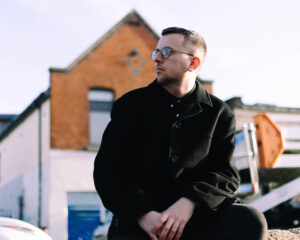
Are you always inspired by such political messages?
“I just write about what I’m feeling at the time or what I’m going through.
“And at that period of time, it was something that I was part of; Just meeting people affected by homelessness and people who are living in hotel rooms and who were living in hostels and just living on the street.
“But when it comes to my other songs, I would be primarily a mental health advocate.
“So that’s where it comes in for me, but it’s all part of the same circle.
“Because if you have the stress of homelessness or the stress of the cost of living, it’s gonna stress you out, and you could say addiction is a part of that as well because when they’re feeling stressed, they turn to drugs or drink and stuff.
“I just hope that the way I use music as therapy for me
can be therapy for someone else.”
“So I write about my mental health more than anything and I use it as a source of therapy. It’s my own way of dealing with things. And then when I play them, the songs are not mine anymore. They belong to the people who take their own meaning and their own message from it.”
Do you think your music enables other people to be able to explore their mental health and to be able to kind of use that music to help themselves?
“Yeah, well, that’s the big hope anyway. People have said it to me.
“I’ve got a song called Stones. I wrote that eight years ago and I still play it. No matter where I am, I’ll always play it.
“And one of my best friends said that helped him before we were even friends when he was going through a hard time. I only found out that about a month ago, and we’re best mates. He’s like a brother to me, you know?
“And then I remember a few years back when I released a video, a parent of a teenager had written to me and said they saw my video and it helped her daughter. So the big hope is that it does. I just try to put everything into those songs.”
Luke’s other interests include writing poetry and learning about greats of the past such as Brendan Behan and Patrick Kavanagh.
“I’m starting to do some workshops with teenagers when it comes to songwriting, so I’m combining my mental health advocacy and songwriting and putting that into a workshop.
“It’s basically how I use songwriting to help my mental health as a therapy and hopefully be able to instil that into teenagers and giving them a way out because I know what it was like when I was younger.
“I think nowadays it’s probably even worse because of the pressures of social media so maybe they’re more in need of an outlet like that, you know?”
What has it been like playing revered festivals like
Electric Picnic and the Edinburgh Fringe?
“I’ve played Electric Picnic a handful of times now. It’s been amazing. I did The Fringe in 2017 and I want to go back next year because I’m starting to release more music. The Fringe was just amazing. I was staying outside of the town so I would trek in every day. I made friends with some of the street performers and I played in different bars and different pubs. It was essentially busking but it was in a venue. It was really cool. It was a lovely experience and I got to meet some cool people and meet some old friends that were there as well. I love that. Camaraderie is there in spirit, it’s just within the music and within just the festival spirit itself.”
You say you have new music coming, what can we expect there?
“This is an exclusive,” Luke laughs. “I haven’t really talked about this. I’m in the middle of recording an album. A lot of the songs will be mental health based, but a lot of them are just a journey of my life through love, through loss, through heartbreak and everything else that comes in between that. I think I might split it into two halves like a Kate Bush kind of thing where I do the singles on one half and then a story on the second half.
“The story is just my personal journey through love and how I feel very unlucky sometimes,” Luke laughs. “I’ve ended up being really lucky now. It’s exciting. We’re doing the demos now at the moment. It’s a slow process but to get to that point, you have to take your time. It’s my first one and you only get one first album. I think it’s just the right step to take.”
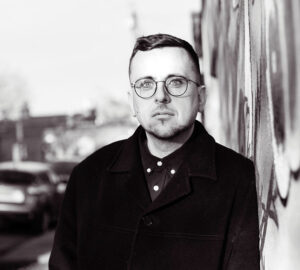
Luke spent some time in Germany.
“I lived in Germany for five months in 2019 and I came back a couple of months before the pandemic. I think once it [Ireland]’s within you, it never goes away. It’s part of you. I found myself missing home so much that I ended up coming home. I found myself very much lost in that city.
“I think being around the community that we have in Dublin – Dublin being so small and full of artists and just amazing, amazing musicians and poets and everything – You miss that and being around that, it inspires you.
“And I didn’t have that.
“You can pick up a guitar in Dublin and just go out and play anywhere on the street. But you couldn’t do that where I was so I missed that. It [Ireland] stays in you, it stays there. It’s always gonna be there within you if you’re a part of it. But you do miss the cultural element of it when you’re not at home.”
You have played in Germany also, how do the crowds abroad
compare to those at home?
“Germany, I just think they listen to music a lot more. They’re more accustomed to listening and not talking over you and stuff like that. It’s really beautiful. It can be kind of scary at times because of that, because you’re like, ‘Okay, they’re listening to everything I’m saying’. Whereas Dublin’s rowdy, you can get that rowdy crowd as well. But obviously, nothing beats a home crowd.
“And then London. I just think my Irish charm and my Irish banter carries over there. And it has done. Loads of my cousins came to see us play in June and they’re from Essex. I was actually born in London. I was born in Hackney.
“I’m trying to kind of retrace some family, just re-connecting with family and stuff like that at the moment so my family came to see me. I’m funny apparently.
“I don’t know, I get really awkward when I’m playing on stage and then I just talk loads so that carries over and it’s just the Irish banter and stuff like that.”
When did you move to Dublin after being born in London?
“When I was two and a half. I lived in a place called Stillorgan, it’s South Dublin and then moved to the total opposite, kind of a middle-class area, to probably the most working-class area of Dublin which is Tallaght.
“So I lived there up until last year, until I actually had to move out because of an eviction notice. Tallaght’s my home. It’s where I became who I am.”
Has Tallaght informed your music?
“Yeah, because I went through a lot growing up there and that translates through my lyrics. I have to write a song about Tallaght, it has to happen. I haven’t done that yet. It’ll happen.
“I’ve noticed maybe since about 2018 there’s a lot more people singing in their own accents rather than being Americanised or anything like that. I think that’s a big thing for Irish music. I think just being proud of the identity that we hold.
“Obviously she passed a few weeks ago, but Sinead O’Connor was somebody who did that and I think people are going to follow in those footsteps. She was the most famous Irish voice ever. And still is, and Dolores [O’Riordan] as well was obviously one of them.
“The story is just my personal journey through love and how I feel very unlucky sometimes,” … “I’ve ended up being really lucky now.”
“So I think just following in those footsteps and embracing the Irishness, I think that’s a huge thing that we need to do. People love the Irish.
“For such a small country and such a small population, look at what we’ve done. I think people are taking more pride in themselves and in their heritage.”
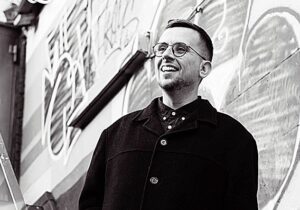 Your music can be political and you mention Sinead who made some political statements, do you think that political edge is becoming more prevalent in Irish music?
Your music can be political and you mention Sinead who made some political statements, do you think that political edge is becoming more prevalent in Irish music?
“I think it is now. I think it is now in these last few years because of everything that’s been going on; the marriage referendum, Repeal and then obviously with housing and mental health crisis. That’s also something that’s not spoken about, the mental health crisis. I think people are being more vocal about that kind of stuff.
“I think Sinead’s passing has been a thing of where people are now like, ‘Okay, she did it’. And obviously it kind of went against her at some points, but she did it. I think it’s a big thing. It’s happening, and even today, with that protest, we sang outside the Dáil for three hours. I think it’s a big thing. It has to happen more. I think more people are becoming socially conscious in all aspects of music and all over the world.”
To anyone reading this, Luke says: “I would just love for them to come and sing with me and join in with me in the Camden Chapel and keep an eye out for the album.
“And my songs, especially the ones about mental health – I want them just to be able to connect with people and I hope people can make them theirs and use them as ways of finding solace through the pain and the suffering that happens to us.
“I suffer a lot with my mental health, especially in the last few months.
“I just hope that the way I use music as therapy for me can be therapy for someone else.”
Luke Clerkin plays Live at the Camden Chapel on Thursday 19 October.
For more information and to book, click here.
For more information about Luke, visit Luke’s Facebook page.



